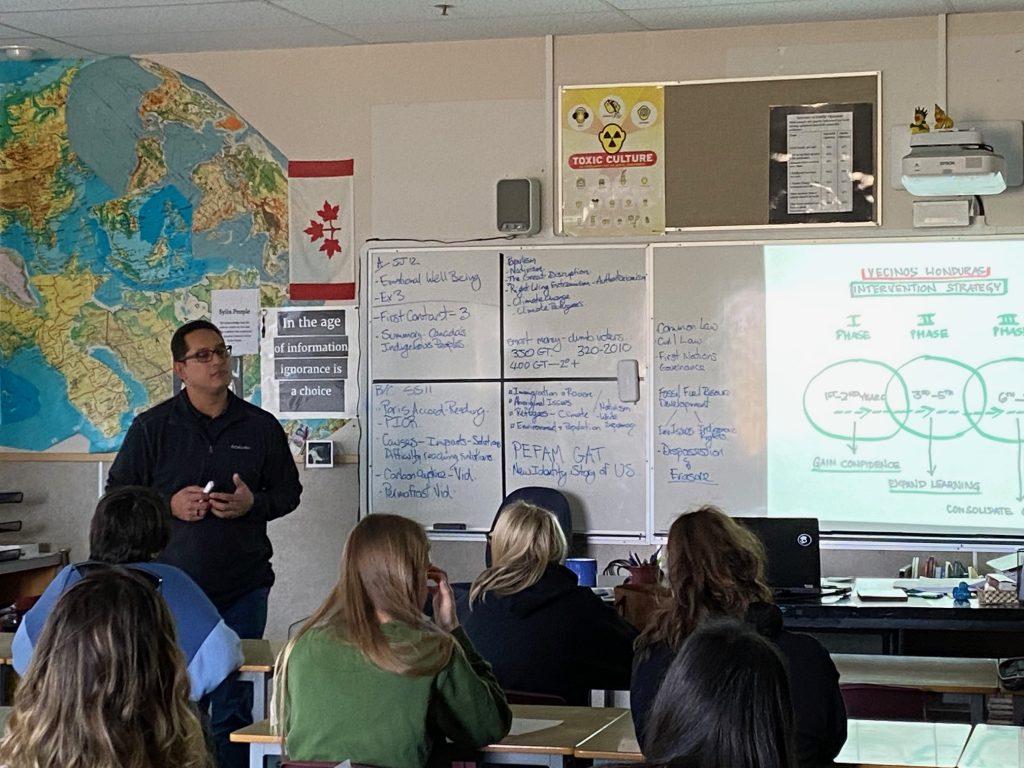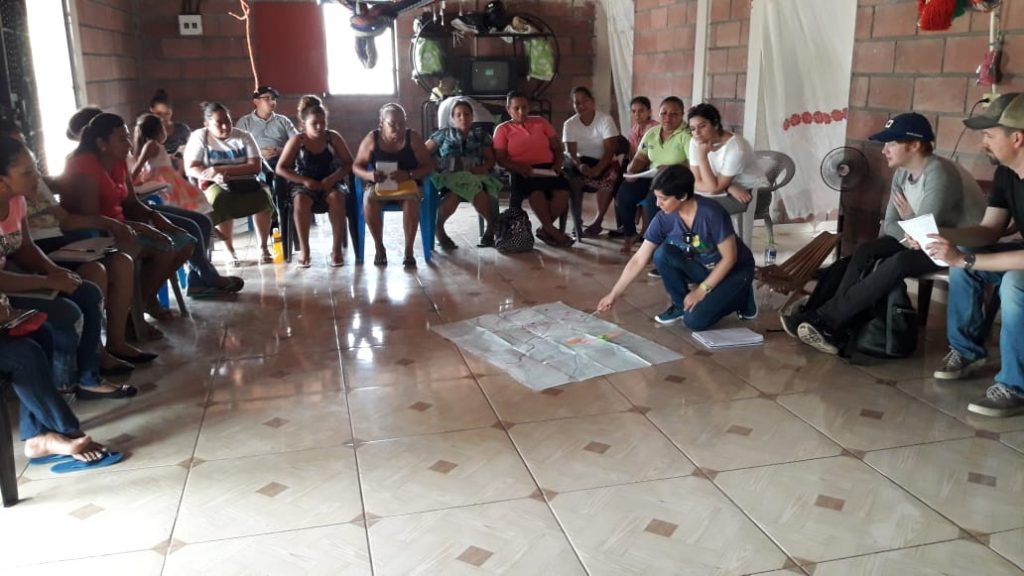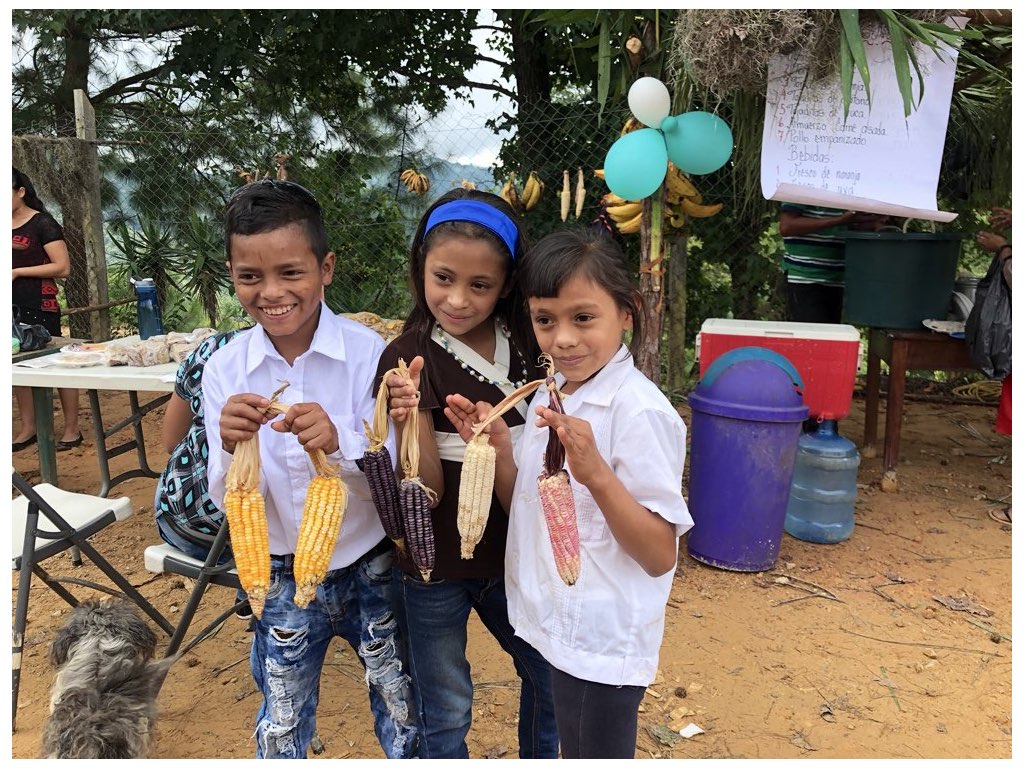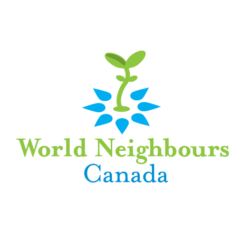
By Gabriel Newman, Board Member of World Neighbours Canada
I want to tell a short story about a conversation that occurred just before the Covid pandemic took over the Americas.
Back in March, Edwin Escoto, the Executive Director for our partner organization Vecinos Honduras, was in BC giving talks about life in Honduras. While I was with him, I got to watch him talk to about two hundred high school students. He talked about corruption, poverty and hunger in Honduras; he spoke about the human rights that are not afforded to many; and he talked about VH’s approach to helping communities build capacity and to advocate for their own rights. It is a lot to absorb in an hour-long talk and I could tell that many students felt overwhelmed, but they also felt compassion. The most common response I heard from students and teachers was, “what can we do?”

Honestly, I didn’t have a great answer for that. The trip was not for fundraising purposes but education. I wasn’t going to try to sign them up as monthly donors and World Neighbours doesn’t “do” anything in a concrete sense other that raise funds and leverage those funds for grants so that people in the communities can gain the skills to “do the work.”

One teacher said that they do an annual fundraiser and was curious that if they raised $500 for VH, what it could go towards. Edwin quickly mentioned hygiene for students. As part of the slate of programs and training VH conducts in communities, proper hygiene training for children in schools (hand washing) would have a huge impact on the health of students. I could tell it wasn’t the sexiest of answers. It wasn’t concrete and it felt somewhat basic. I figured I would have to think of something more interesting and important. Then came Covid.

While the communities that VH works in lack food security, water and easy access to hospitals, they do understand hygiene and community health through VH’s training. That gives them a huge advantage in battling Covid. These communities already have a collection of volunteers to organize and spread information and conduct health training. And most importantly the children and adults understand the importance of hand washing, the main defence against contracting the virus! This does not make these communities immune from Covid, but it will help slow the spread should the virus reach these isolated people. And it will arrive soon if it hasn’t already. People are leaving the heavily affected cities to go to their family homes in the villages and bringing Covid with them. What I dismissed as uninteresting became the cornerstone for helping these communities protect themselves.

So, the next time I am asked where funding could be allocated, I will definitely say, “hygiene in schools.” It is inexpensive and basic, yet this pandemic has demonstrated it is also life saving.

